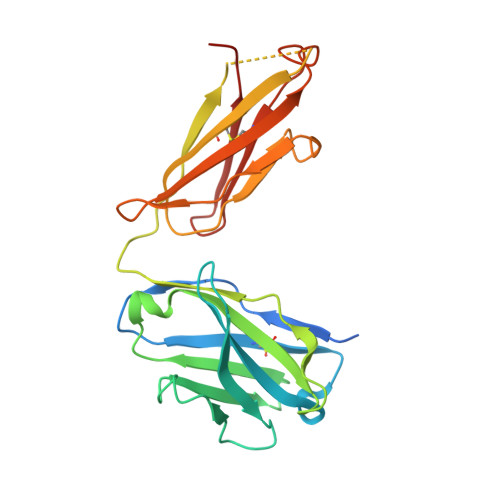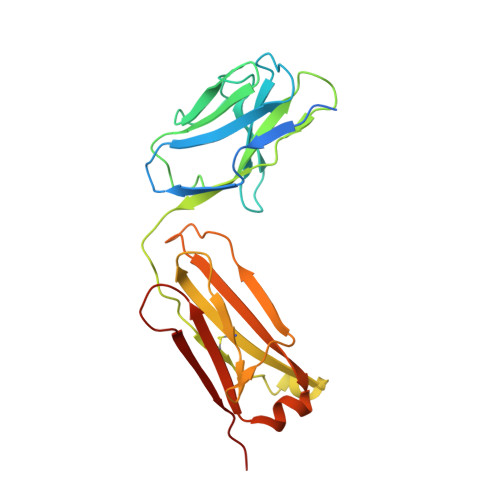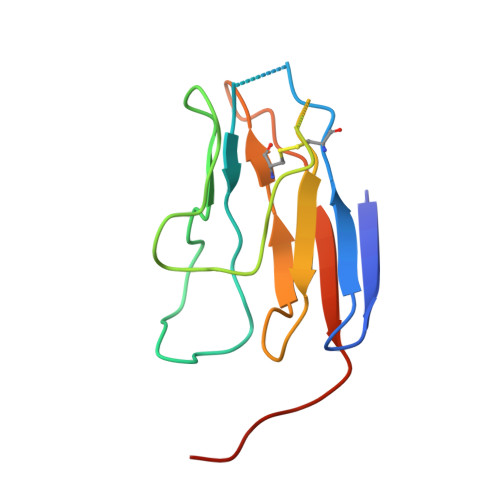Heparan sulfates are critical regulators of the inhibitory megakaryocyte-platelet receptor G6b-B.
Vogtle, T., Sharma, S., Mori, J., Nagy, Z., Semeniak, D., Scandola, C., Geer, M.J., Smith, C.W., Lane, J., Pollack, S., Lassila, R., Jouppila, A., Barr, A.J., Ogg, D.J., Howard, T.D., McMiken, H.J., Warwicker, J., Geh, C., Rowlinson, R., Abbott, W.M., Eckly, A., Schulze, H., Wright, G.J., Mazharian, A., Futterer, K., Rajesh, S., Douglas, M.R., Senis, Y.A.(2019) Elife 8
- PubMed: 31436532
- DOI: https://doi.org/10.7554/eLife.46840
- Primary Citation of Related Structures:
6R0X - PubMed Abstract:
The immunoreceptor tyrosine-based inhibition motif (ITIM)-containing receptor G6b-B is critical for platelet production and activation. Loss of G6b-B results in severe macrothrombocytopenia, myelofibrosis and aberrant platelet function in mice and humans. Using a combination of immunohistochemistry, affinity chromatography and proteomics, we identified the extracellular matrix heparan sulfate (HS) proteoglycan perlecan as a G6b-B binding partner. Subsequent in vitro biochemical studies and a cell-based genetic screen demonstrated that the interaction is specifically mediated by the HS chains of perlecan. Biophysical analysis revealed that heparin forms a high-affinity complex with G6b-B and mediates dimerization. Using platelets from humans and genetically modified mice, we demonstrate that binding of G6b-B to HS and multivalent heparin inhibits platelet and megakaryocyte function by inducing downstream signaling via the tyrosine phosphatases Shp1 and Shp2. Our findings provide novel insights into how G6b-B is regulated and contribute to our understanding of the interaction of megakaryocytes and platelets with glycans.
- Institute of Cardiovascular Sciences, College of Medical and Dental Sciences, University of Birmingham, Birmingham, United Kingdom.
Organizational Affiliation:




















